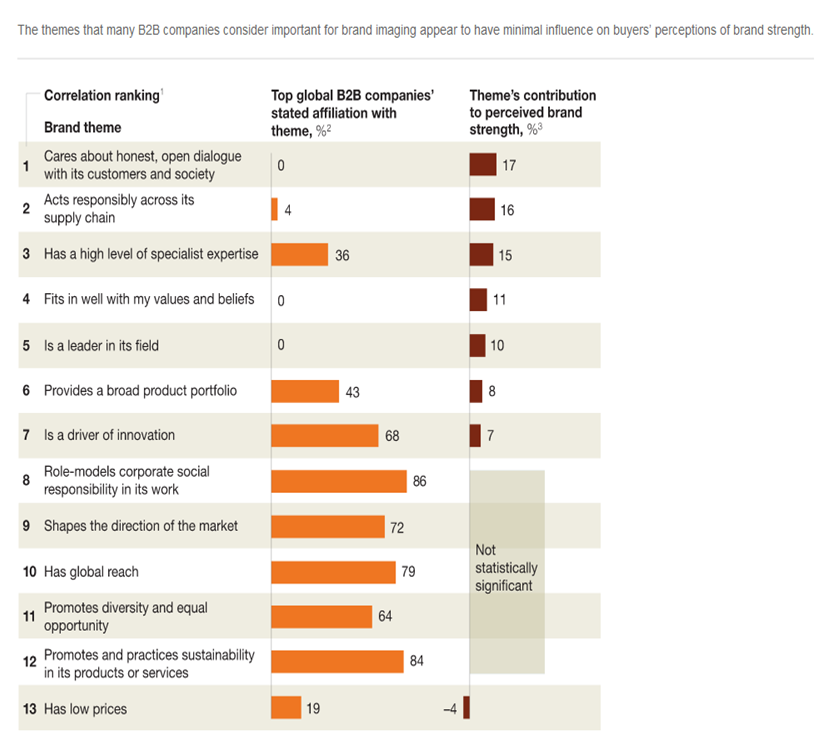McKinsey Consulting conducted research into brand messaging for companies in the B2B space and the results were interesting. Upon analyzing the themes and topics on which a valid sample of Fortune 500 B2B companies communicated their brand messages, McKinsey identified 13 different themes – for example, low pricing, social responsibility, innovation, etc.
Next, they reviewed public documents to determine how many elements of their brand messaging were linked to any of the 13 themes identified earlier.
The final step was to assess what’s important to decision makers relative to their buying decisions. McKinsey surveyed more than 700 global executives across the six business sectors, asking how important each theme was to how they evaluated the brand strengths of their main suppliers. The findings are remarkable.
Among the top 5 most important themes on which decision makers evaluated the brand strengths of their suppliers, only one matched a theme stated in the brand messaging from the B2B firms – “has a high level of specialist expertise”. See exhibit below (supplied by McKinsey).
What is so interesting about this study is some of the more societal themes (social responsibility, diversity and equal opportunity, and sustainability) were found to be insignificant to how B2B decision makers evaluate their suppliers. On the contrary, some of the more traditional theme such as honesty, responsibility across the supply chain and depth of technical expertise are among the most valued.
Beyond the branding element, there is a significant sales implication. McKinsey found that the personal interactions of sales reps with their customers remain one of the most influential factors for B2B customers. Consequently, salespeople have a huge influence on how customers view market differentiation and value propositions for their companies. This skill set doesn't come naturally to the majority of salespeople and reinforces the importance of investments in sales processes, and sales training and development.
As a sales and digital marketing agency, we are able to communicate important B2B brand messages across the internet and educate your sales staff about how to effectively communicate competitive differences and value propositions to your customers.
This study should compel B2B companies to re-examine what they stand for, what brand messages they are communicating, what they are communicating in terms of value propositions, and how their salespeople and other customer-facing people are interacting with their customers.






Agree, disagree, or just have something to add?
Leave a comment below.